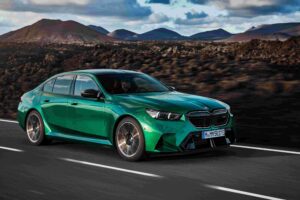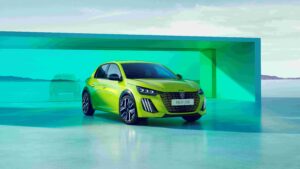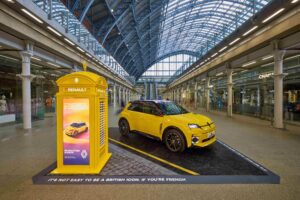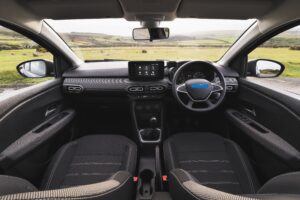The Volvo EX30 possesses the smallest carbon footprint of any fully electric Volvo car to date. That’s according to the life cycle assessment (LCA) of the Volvo EX30, available here, which concludes that it has a total carbon footprint of 23 tonnes per 200,000 km – approximately 60 per cent less than the XC40 ICE (petrol).
The carbon footprint report identifies the key contributing materials and processes to the car’s emissions. Exclusively focused on greenhouse gas (GHG) emissions, the report covers the car’s life cycle, starting with the extraction and refining of raw materials and ending with the car’s end of life.
Using wind-based electricity to charge the EX30 substantially reduces the carbon footprint compared with global or European electricity mixes by approximately 42 per cent and 22 per cent respectively. This underlines the need to accelerate investments in renewable energy infrastructure globally for electric cars to reach their full climate potential.
“Transitioning to electric cars is key to limiting climate change, but increased transparency about its challenges is needed to reduce their emissions even further,” says Jonas Otterheim, Head of Climate Action at Volvo Cars. “By studying the EX30’s carbon footprint and identifying its primary materials and processes, we aim to provide valuable insights that can help guide decisions in our company towards becoming more sustainable, as well as among the wider industry.”
We have now completed comprehensive LCAs of the carbon footprint for three of our fully electric cars launched since 2019: the Volvo EX40, EC40 and now the EX30. By making these reports available to the public, we hope to help customers make informed decisions when choosing their next electric car.
An important step in our journey towards net zero greenhouse gas emissions – A car is not just driven. It is also designed, developed, built and transported – providing us with numerous opportunities to reduce greenhouse gas emissions and make progress towards achieving each of our sustainability ambitions. With the Volvo EX30 we are taking an important stride towards our goal of becoming a fully electric car company by 2030 and our aim to reach net zero greenhouse gas emissions by 2040.
The proportion of recycled materials in the EX30 is the highest of any Volvo car so far. Around one quarter of the aluminum and almost one fifth of the steel is recycled material. In addition, around 17 per cent of all plastics within the car, from interior components to exterior bumpers, are made from recycled material.
Thanks to initiatives across our supply chain and manufacturing, the LFP-equipped Volvo EX30 has a ‘cradle-to-gate’ impact of an estimated 14.8 tonnes – just over 60 per cent of the model’s total carbon footprint4. This includes emissions generated during the production of materials and the car, but excludes emissions from the use and end-of-life phases of the EX30.
We plan to reduce the EX30’s CO2 impact even further by collaborating with suppliers across our entire value chain. By 2025 for example, our battery suppliers are working towards reducing emissions from manufacturing the LFP battery by 20 per cent, and by 46 per cent in the case of the NMC battery. To do this, our suppliers aim to replace electricity usage during cell manufacturing with renewable energy sources, increase the share of recycled content in their materials and reduce their supply chain emissions.









